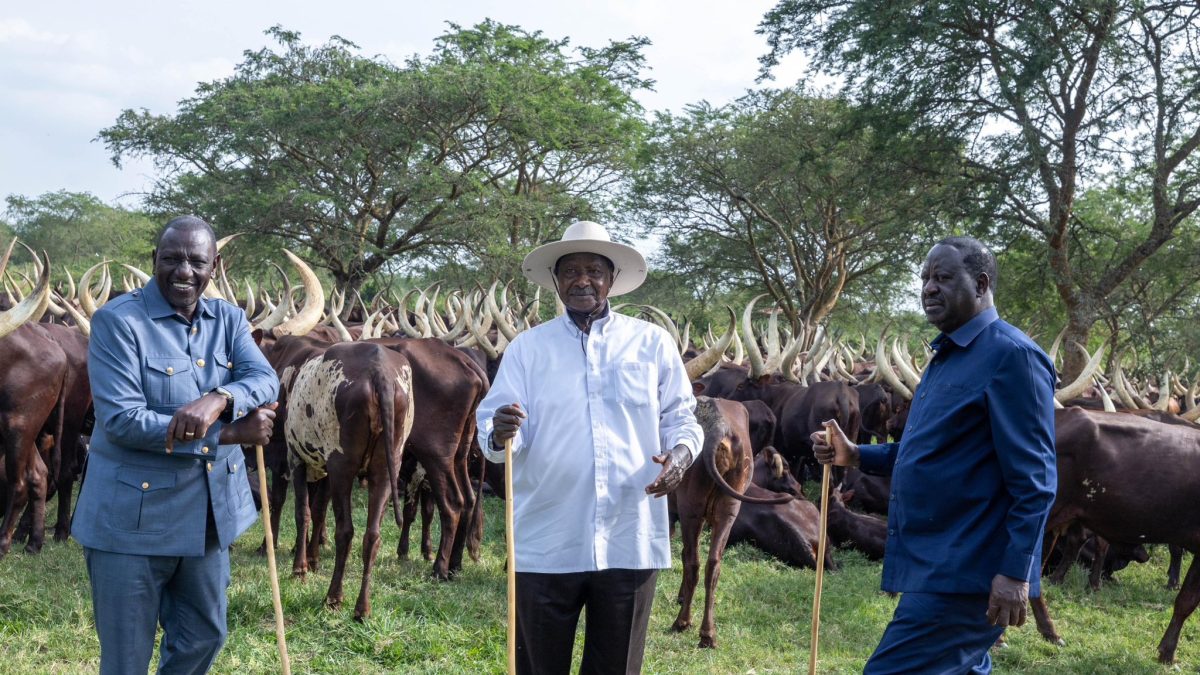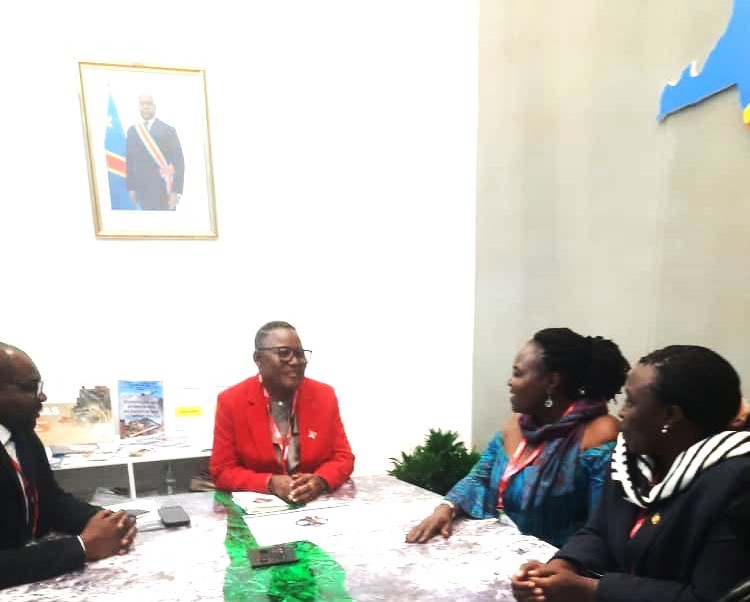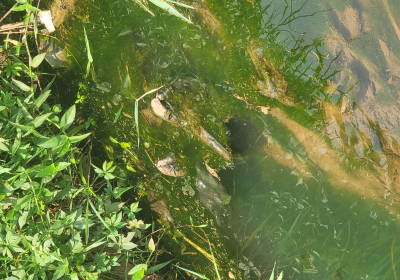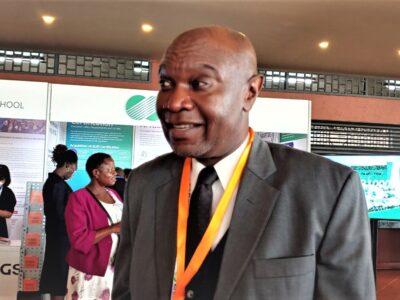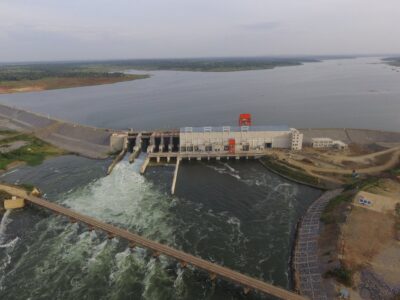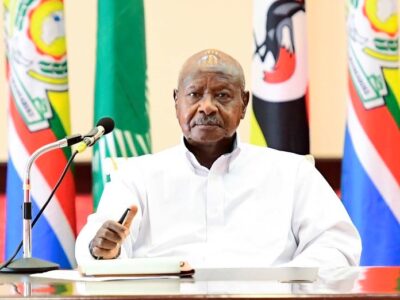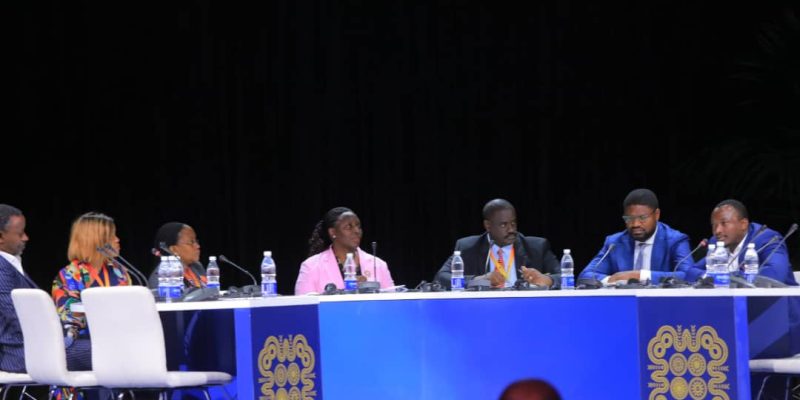
By Jeff Mbanga
CAPE TOWN – Uganda’s delegation put up a spirited lobby for investments in the country’s energy sector on the last day of the Africa Energy Week (AEW) in Cape Town, South Africa; reinforcing the presence of a conducive and predictable regulatory regime to protect the millions of dollars needed in the oil and gas, mining and electricity industries.
While calling on investors to come and do business, Irene Batebe, the Permanent Secretary in the Ministry of Energy, who led the team, said Uganda is not only preparing to launch a new oil licensing round in June 2024, but it has also opened up space within the transmission segment of the electricity supply industry for private capital.
In doing all this, Batebe added the long-term view remains to go green with the promotion of e-mobility through the exploitation of the country’s critical minerals such as rare earths elements (REEs).
“Without a doubt, we must exploit our petroleum to be able to equally invest in these renewable options. And in terms of the long-term view, we see electric mobility also coming into play,” she said.
Adding, “Already, we are finalizing a strategy that can help us see how we also deploy electric mobility as part of our energy transition plan. We are therefore very keen to see investment in our critical minerals.
The AEW is an annual event that gathers investors from all over the world with the focus to invest in Africa’s energy sector. The event, which is usually held a few weeks before the global climate change summits, is meant to rally investors not to give up on Africa’s ambitions to exploit all sources of energy in order to uplift its population.

The Uganda team that pitched to investors at the AEW
This year, the AEW has run from 16-20 October, under the theme, ‘The African Energy Renaissance: Prioritizing Energy Poverty, People, the Planet, Industrialization and Free Markets’.
Nearly 600 million Africans are said to have no access to electricity.
Uganda is developing an over $15 billion oil project oil project – a crude oil pipeline and a refinery – which has come under criticism from climate-change activists over its purported risks to the environment.
The crude oil pipeline is expected to ship out 230,000 barrels of oil per day at peak from Hoima in Uganda to the Tanzania port of Tanga when it is commissioned within its scheduled timeline of the first quarter of 2025.
It will be the world’s longest heated underground crude oil pipeline, running for 1,445km.
Also, an oil refinery with a capacity of 60,000 barrels of oil is expected to be commissioned in 2027.
The debt component will take the larger share of the financing needs for the pipeline and refinery.
Uganda’s delegation said it was committed to developing its oil project using best practices.
“We are prudent operators working and riding on the back of very prudent international oil companies, and we’ll do everything possible to ensure that the project delivers the much-anticipated value, while we protect biodiversity at the same time,” said Proscovia Nabbanja, CEO, Uganda National Oil Company, (UNOC).
On his part, Ali Ssekatawa, the Director Legal and Corporate Affairs, at the Petroleum Authority of Uganda (PAU) noted that the country’s the upstream and midstream laws (introduced between 2013 and 2016), which also take in the environment aspect, were modelled around international best practices.
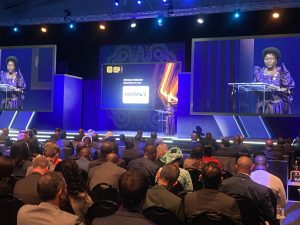
Energy Minister Ruth Nankabirwa addressed the AEW delegates earlier in the week
Already four rigs have been deployed on both the Tilenga, which is operated by France’s TotalEnergies, and the Kingfisher, operated by China’s CNOOC, sites, with the drilling of the oil underway.
Also, above ground installation works to mobilise staff and equipment for the East African Crude Oil Pipeline (EACOP) have already started.
All major contracts for the EACOP have been awarded, while land acquisition for the entire route of the pipeline is almost complete.
When it comes to the refinery, Uganda has already selected a South African firm – COEGA – to open up the industrial park.
On top of its participating interest in the EACOP, the Tilenga and Kingfisher projects, UNOC is also developing petroleum storage facilities as part of the oil refinery project.
UNOC is building a $1 billion equity investment, which remains far below the nearly $15 billion it needs to execute these projects comfortably.
The return on investment for some of these projects, Nabbanja said, should excite any investor.
“When you look at all the projects, for every dollar we are investing, we are returning about 10 dollars,” she said.
And on the oil refinery, Nabbanja said that they have “done a macroeconomic assessment of the project, and you can imagine the level of returns that we are going to get from that project… in excess of 20 per cent.”
Adding, “At the same time, the metrics around the balance of payment, the national capital formation, and so many other metrics that will come with it, are quite enormous.”
Aggrey Ashaba, who sits on the board of the Private Sector Foundation of Uganda, and is already a player in the oil and gas sector (through GCC), said investors have very little to worry about.
“In terms of regulation, policy, and the opportunities, they are basically hand-in-glove with the aspirations of the private sector. So, we are not at variance between what they (government) are trying to regulate and what the private sector would like to do,” said Ashaba, who also serves as General Secretary at the Uganda Chamber of Mines and Petroleum (UCMP).
Job Kahigwa, the Managing Director, ROHI Investments, a local company that has undertaken site-preparation works at the Tilenga and Kingfisher oilfields, said foreign investors needed to examine joint venture partnerships with local players.
“We are looking at a working capital performance guarantee package of up to $30 million for our projects. And this is way beyond our capacity to be considered bankable as a local entity with our small profit and loss books of accounts,” Kahigwa said.
Adding, “So, the message here is how are we able to raise $30 million, and execute these projects that we have right now?”



